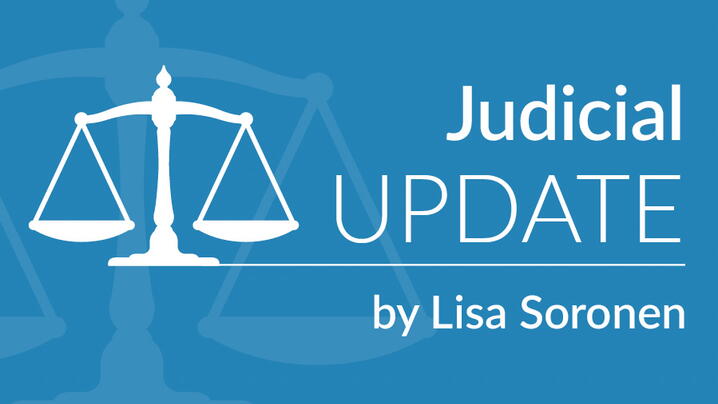
by Lisa Soronen, executive director, State and Local Legal Center
In a 5-to-4 decision in National Institute of Family and Life Advocates v. Becerra, the Supreme Court ruled that a California law requiring licensed pregnancy clinics to disclose they don’t offer abortions and unlicensed pregnancy clinics to disclose the fact they are unlicensed likely violates the First Amendment. The State and Local Legal Center (SLLC) filed an amicus brief, in this case, asking the court not to apply the highest level of scrutiny (strict scrutiny) to commercial speech or to every disclosure requirement adopted by states and local governments.
California law requires that “licensed covered facilities” that provide family planning or pregnancy-related services must disseminate a notice stating that publicly-funded family planning services, including contraception and abortion, are available. It also requires “unlicensed covered facilities” to disseminate a notice they are unlicensed. The author of the law noted that there are nearly 200 licensed and unlicensed crisis pregnancy centers in California. These centers “aim to discourage and prevent women from seeking abortions.”
The National Institute of Family and Life Advocates (NIFLA) operates licensed and unlicensed covered facilities that don’t offer abortions. It argues these requirements violate its First Amendment right to free speech.
The Supreme Court, in an opinion written by Justice Thomas, agreed that both notices likely violate the First Amendment. The court held that notice requirements for licensed clinics are content-based, so strict scrutiny would apply (meaning the notice is presumptively unconstitutional). The lower court held that lower (intermediate) scrutiny applied because the notices were “professional speech.” The Supreme Court stated it has never recognized a category of “professional speech.” Regardless, it held the licensed notice requirement failed to pass even intermediate scrutiny because it doesn’t apply to numerous other community clinics, which serve low-income women, that are the intended target of the licensed notices.
Regarding the unlicensed notices, the court assumed but did not decide that the standard for disclosure requirements from Zauderer v. Office of Disciplinary Counsel (1985) applies. Per Zauderer, disclosure requirements are unconstitutional if they are “unjustified or unduly burdensome.” According to the court, California’s justification for the unlicensed notice is “purely hypothetical.” “The only justification that the California legislature put forward was ensuring that 'pregnant women in California know when they are getting medical care from licensed professionals.'" At oral argument, however, California denied that the justification for [the unlicensed notice] was that women "go into [crisis pregnancy centers] and they don’t realize what they are." Indeed, California points to nothing suggesting that pregnant women do not already know that the covered facilities are staffed by unlicensed medical professionals.
The SLLC amicus brief did not take a position on whether the disclosure law at issue, in this case, violated the First Amendment. But it did urge the court to ensure that strict scrutiny does not apply to every disclosure requirement adopted by state and local governments (e.g., restaurants must post signs explaining how to provide first aid to choking patrons). Justice Breyer’s dissenting opinion speculates that the majority opinion has perhaps done this.
Justice Breyer points out “[v]irtually every disclosure law could be considered ‘content based.’” The majority opinion states it does not “question the legality of health and safety warnings long considered permissible or purely factual and uncontroversial disclosures about commercial products. But this generally phrased disclaimer would seem more likely to invite litigation than to provide needed limitation and clarification.”
John Baker, Katherine Swenson, Karl Procaccini, Holley Horrell, and Virginia McCalmont, Greene Espel, wrote the SLLC amicus brief, which the following organizations joined: National League of Cities, United States Conference of Mayors, International City/County Management Association, and International Municipal Lawyers Association.
Related Content
Supreme Court Decides Unique Retaliatory Arrest Case. This 2018 blog post looks at a case involving the rights of residents during public comment periods at city council meetings.
Supreme Court Decides First Amendment Public Employment Case. In a blog post from 2014, the court ruled on a first amendment case involving how to define citizen speech versus employee speech.
Colorado Cake Maker Wins Same-Sex Marriage Cake Case in Narrow Opinion. In another 2018 blog post, the question before the court was whether local governments can have and enforce public accommodations provisions that include sexual orientation.
New, Reduced Membership Dues
A new, reduced dues rate is available for CAOs/ACAOs, along with additional discounts for those in smaller communities, has been implemented. Learn more and be sure to join or renew today!
